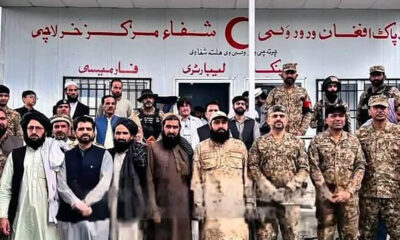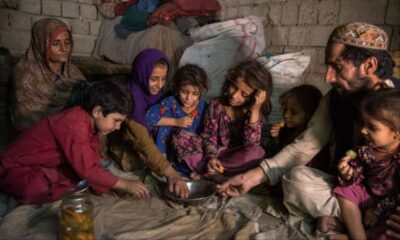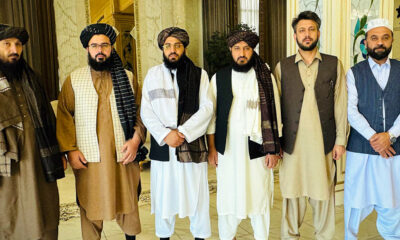Health
WHO proposes budget cut after US exit, defends its work
On Monday, Tedros also specifically addressed some of Trump’s criticisms, including around the handling of the COVID-19 pandemic and the WHO’s independence.

World Health Organization member states will discuss cutting part of its budget by $400 million in light of President Donald Trump’s move to withdraw the U.S., its biggest government funder, from the WHO, a document released on Monday showed.
Opening the U.N. agency’s annual executive board meeting, WHO Director General Tedros Adhanom Ghebreyesus also defended the WHO’s work and recent reforms and reiterated a call for Washington to reconsider its exit and enter into dialogue with the agency on further change, Reuters reported.
“We would welcome suggestions from the United States, and all member states, for how we can serve you and the people of the world better,” he said.
The budget cut will be addressed at the Feb. 3-11 Geneva meeting, during which member state representatives will discuss the agency’s funding and work for the 2026-27 period.
The executive board proposes cutting the base programmes section of the budget from a proposed $5.3 billion to $4.9 billion, according to a document released on Monday. That is part of the wider $7.5 billion budget for 2026-27 that was originally proposed, including money for polio eradication and tackling emergencies, read the report.
“With the departure of the biggest financial contributor, the budget could not be ‘business as usual,'” the document reads. The U.S. is the WHO’s biggest government donor, contributing around 18% of its overall funding. The WHO has already separately taken some cost-cutting steps after the U.S. move.
However, some board representatives also wanted to send a message that the WHO would preserve its strategic direction despite the challenges, the document adds.
The $4.9 billion is roughly the same as the base programme budget for the previous period, 2024-2025.
Trump moved to exit the WHO on his first day in office two weeks ago. The process will take one year under U.S. law.
On Monday, Tedros also specifically addressed some of Trump’s criticisms, including around the handling of the COVID-19 pandemic and the WHO’s independence.
He said the agency acted fast on the COVID outbreak, adding that the WHO is happy to say no to member states where requests go against its mission or science.
Health
Head of MSF in Afghanistan meets with Jalali over improving healthcare services
Michael Lippi committed to making efforts aimed at improving the quality of healthcare services and fostering better coordination.
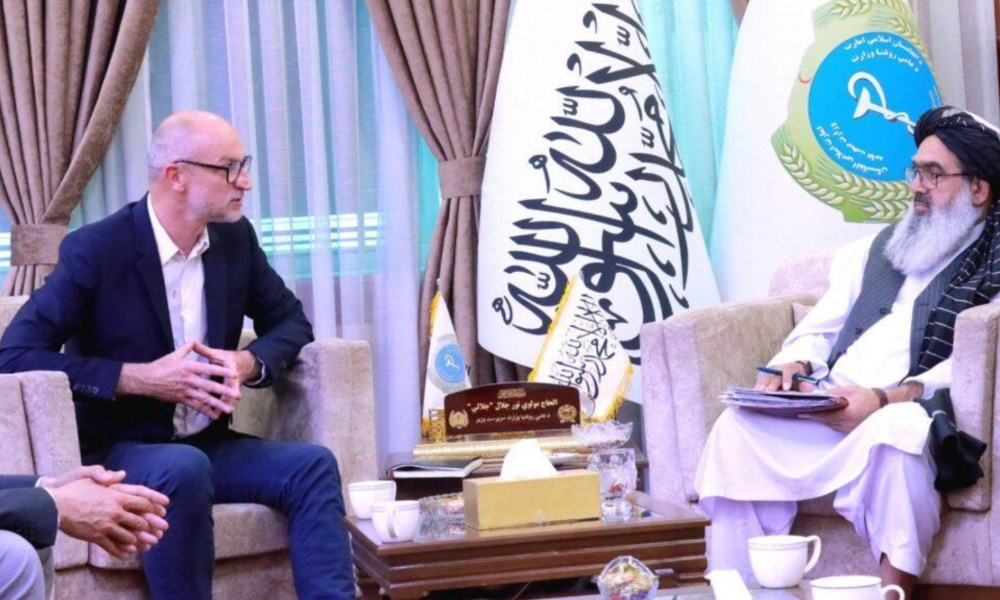
Afghanistan’s Acting Minister of Health Noorjilal Jalali met with the head of Medecins Sans Frontieres (MSF) for Afghanistan, Michael Lippi, for discussions on improving healthcare centers and medical services in the country.
The two officials also discussed enhancing the capacity of healthcare workers, ensuring transparency in services, improving coordination with the Ministry of Public Health, and delivering effective and sustainable healthcare services.
Jalali emphasized the importance of increasing and expanding the organization’s support for the health sector and called for further development of services.
He stressed the need to enhance the capacity, quality, effectiveness, and transparency of healthcare workers.
Michael Lippi also emphasized the need for further improvements in health services in Afghanistan and the expansion of this sector.
He committed to efforts aimed at improving the quality of healthcare services and fostering better coordination. He specifically addressed the continuation of services in the provinces of Herat, Kunduz, and Helmand, confirming that these centers will continue their operations in collaboration with the Ministry of Public Health.
Meanwhile, Mohammad Naeem, the Deputy Minister for Finance and Administration at the Ministry of Foreign Affairs of the Interim Government, held a separate meeting with
Michael Lippi to discuss the expansion of healthcare services and the provision of necessary facilities for returning migrants.
According to the Ministry of Foreign Affairs, Lippi reassured government that MSF’s efforts to improve maternal and child health and enhance the capacity of healthcare personnel will continue.
Health
Japanese charity Peshawar-Kai to resume leprosy treatment in Afghanistan
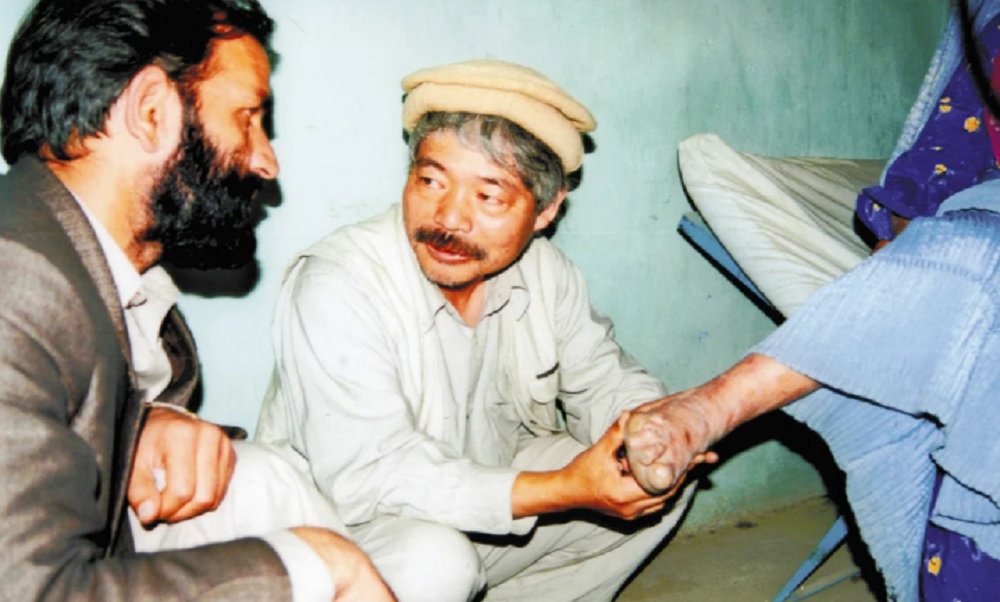
Peshawar-Kai, a Japanese aid organization, has announced that it will resume leprosy treatment in Afghanistan after around 15 years.
The charity will treat leprosy patients in memory of its former head Tetsu Nakamura, Japan’s Yomiuri Shimbun newspaper reported.
The NGO will begin its leprosy treatment program in Afghanistan this year.
It will treat patients in areas such as Nangarhar province by providing medicines, training staff and sending mobile treatment teams.
Leprosy, also known as Hansen disease, is a chronic infectious disease caused mainly by a type of bacteria called Mycobacterium leprae. The disease affects the skin, the peripheral nerves, the mucosa of the upper respiratory tract and the eyes.
Nakamura started treated leprosy patients in Pakistan in the 1980s and then began extensive activities, including the construction of water supply canals in Afghanistan.
The Japanese aid worker was killed in an armed attack in Jalalabad in December 2019.
Health
WHO confirms second Polio case in Afghanistan
The Islamic Emirate of Afghanistan’s Public Health Ministry has not yet commented.
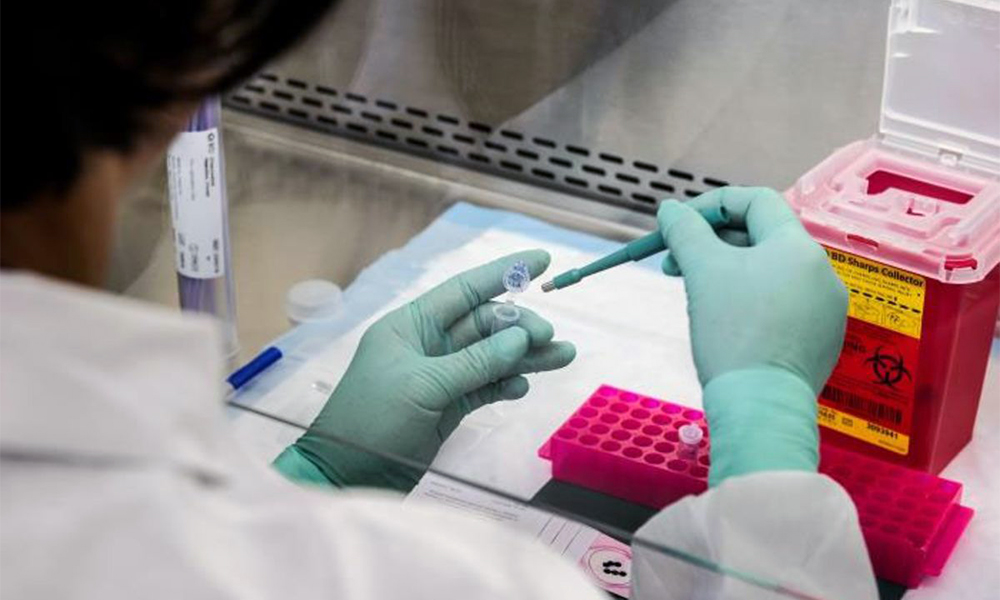
The World Health Organization (WHO) has confirmed the second case of polio in Afghanistan for the year 2025.
The case was identified in March in Helmand province.
This follows the first reported case in the Bala Murghab district of Badghis province, where a five-year-old girl was diagnosed with the virus.
Additionally, 18 environmental samples testing positive for the polio virus have been reported in provinces including Kandahar, Helmand, Kabul, Laghman, Nangarhar, and Zabul.
Afghanistan and Pakistan remain the only countries where polio has not been eradicated.
Polio is a viral disease for which there is no cure, and vaccination is the only way to protect children from it.
The Islamic Emirate of Afghanistan’s Public Health Ministry has not yet commented.
-

 Latest News4 days ago
Latest News4 days agoPakistan says India launched attack on Afghanistan, India denies
-

 Latest News5 days ago
Latest News5 days agoMCC Chief: Afghan cadres sent to China for AI training
-

 World4 days ago
World4 days agoUS offers to help India and Pakistan start talks, G7 also urges dialogue
-
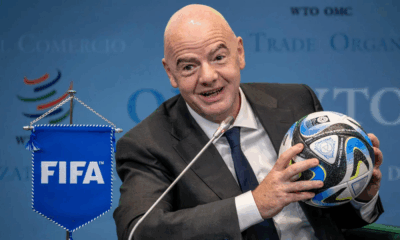
 Sport4 days ago
Sport4 days agoFIFA OKs creation of Afghanistan women’s refugee team
-

 Regional4 days ago
Regional4 days agoPakistan says it has launched military offensive against India
-

 World4 days ago
World4 days agoTrump says India, Pakistan agree to ‘full and immediate ceasefire’
-
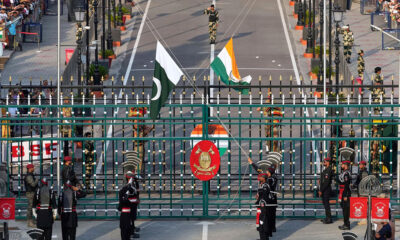
 Regional3 days ago
Regional3 days agoExplosions reported after India and Pakistan agree to ceasefire
-

 Tahawol4 days ago
Tahawol4 days agoTahawol: Status of Afghanistan’s infrastructure projects reviewed






